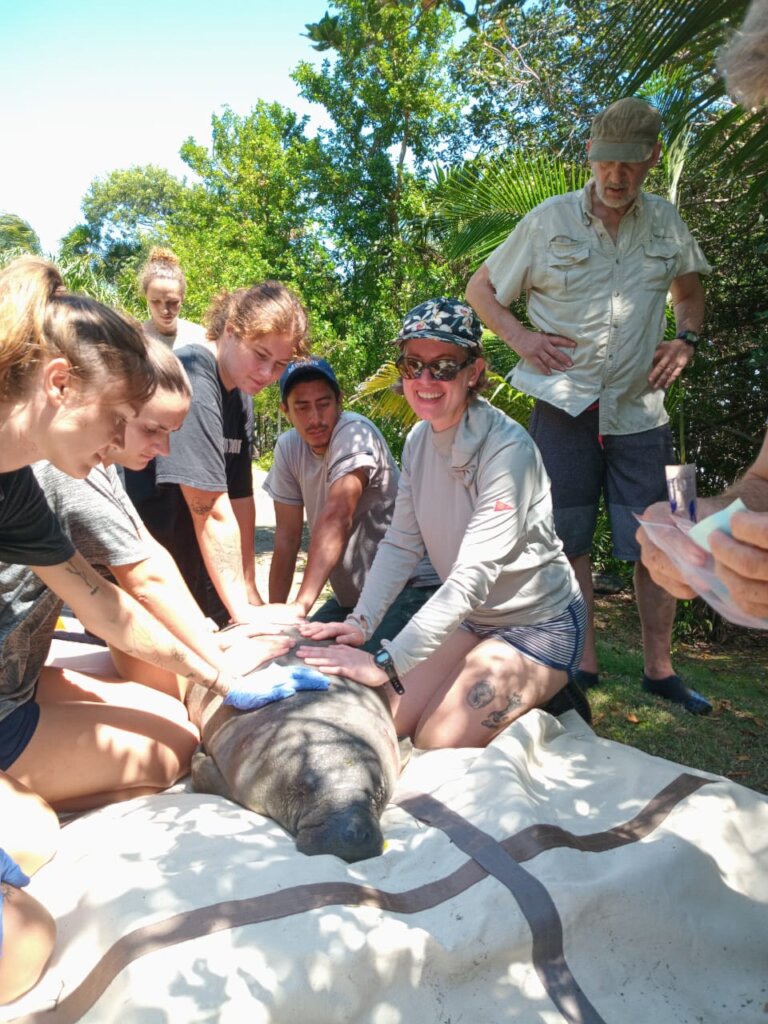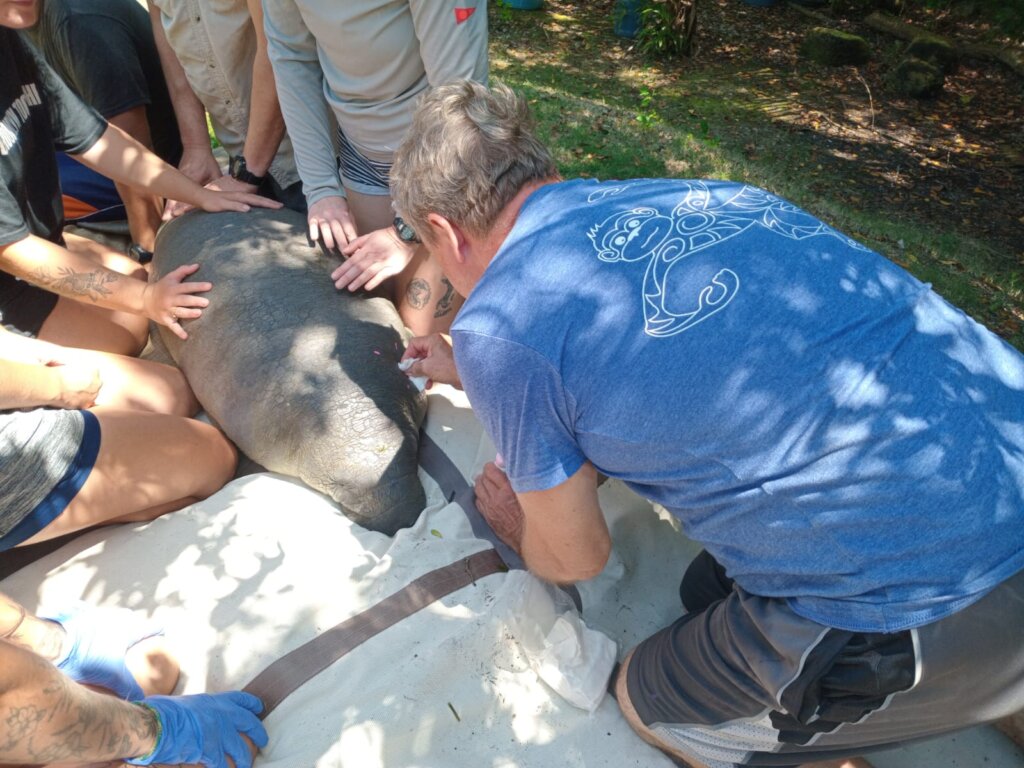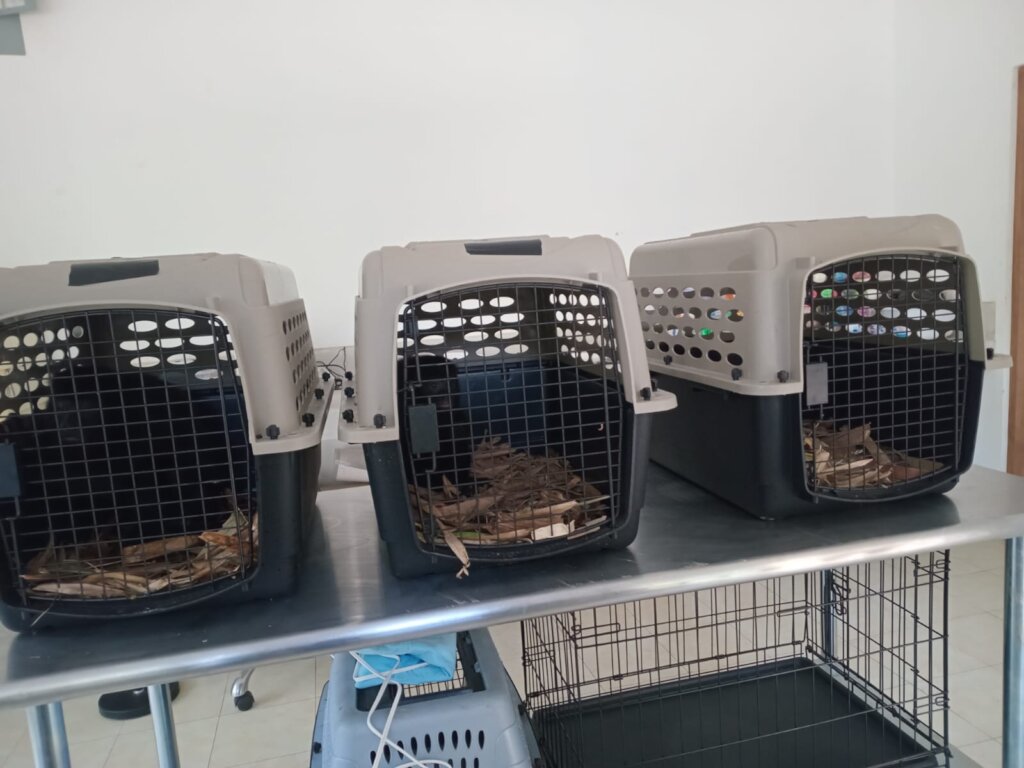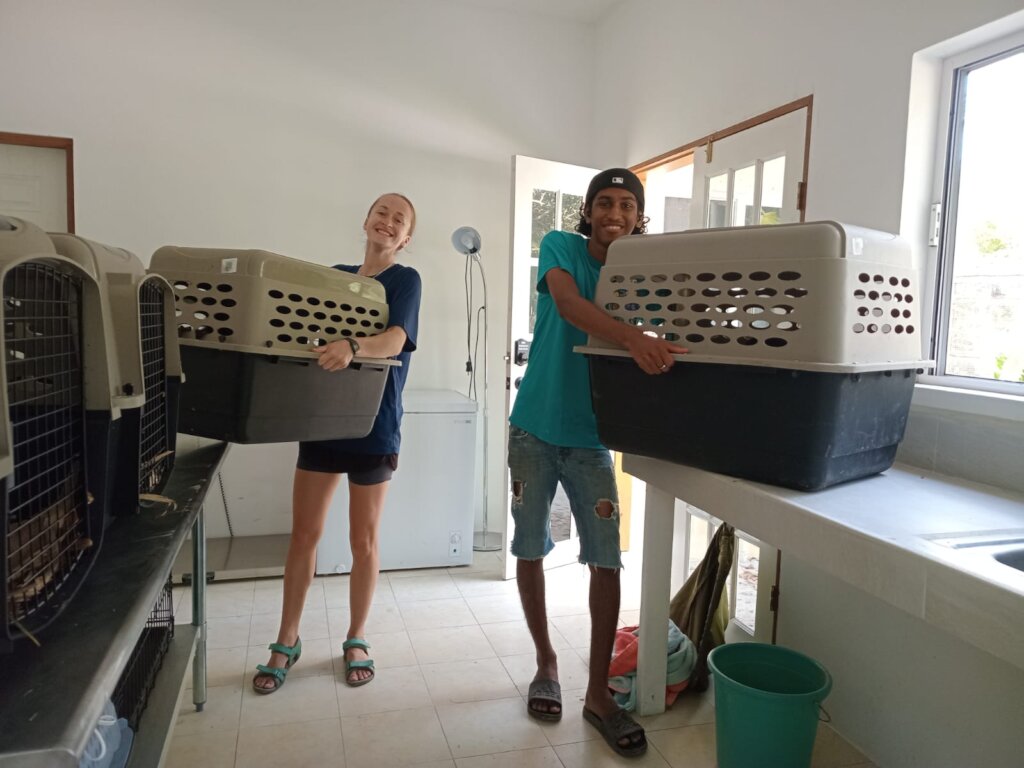By Zoe Walker | Director
As we enter April, we are gearing up for our next set of primate releases, and this includes strengthening our partnership with Corozal Sustainable Future Initiative (CSFI), the protected area management organization for the North Eastern Corridor – the rehab primate release site. As part of this, we have moved forward on a joint release of four rescued Yucatan black howler monkeys into the southern end of the corridor. These monkeys came in for translocation to safer areas – two had started to break into resort accommodation in search of food, after being fed bananas, the other two (one from Yo Creek and one from San Victor) entered villages following forest clearance in the surrounding landscape. Landscape clearance for agriculture is the highest threat to monkey populations in Belize, with tropical forests outside Belize’s protected areas being cleared to make way for sugar cane, cattle ranching and small-scale farming. When monkeys find themselves in villages, they are faced with a number of threats – being attacked by dogs, shot by youths with pellet guns and catapults and being run over by vehicles. Concerned villagers will contact the Forest Department who then contact Wildtracks to request assistance for translocation.
The Wildtracks team is trained in darting, catching and moving monkeys safely, and will remove the monkeys, bringing them to the Primate Rehabilitation facility and placing them in quarantine, dealing with any wounds, behavioural or health issues, before moving them to the release site. Unlike the rehabilitation primates, the translocation monkeys go through a hard release – they came into the Centre as wild monkeys and already have the skills they need to survive. They are not tracked, other than through occasional check-ups and opportunistic sightings. It is always a privilege to see them return to the wild – and doubly so to be able to take this step in collaboration with CSFI.
In other primate news, our nursery group of howler monkeys will soon be transferring out of the Nursery Unit to the Forest Enclosures – the next step in their rehab. We also have two younger monkeys requiring one-on-one care – both have now completed quarantine, and will be moving towards integration with other monkeys of their kind. Indie is a young howler monkeys who definitely has strong opinions about how her day should be spent, and Kiki is our youngest spider monkey. Spider monkeys are always more needy as youngsters, with high levels of separation anxiety and a greater requirement for social support until they can be integrated into a spider monkey group.
On the manatee front, Kit and Kat have moved from their pool into the Lagoon Enclosure. The wall is now fully completed, with the extra height for coping with the increased depth of water - one of the aspects of climate change we are experiencing here. During the transfer, they were both fitted with PIT tags – small rice-sized pellets embedded in the shoulder muscle, each with a unique identifying number that can be picked up when the area is scanned, ensuring they can always be recognized. Both are doing very well and have been settling into the more natural environment, exploring the mangroves and coping with the fish and waves (which are particularly wavy at the moment, as we have the strong south easterly trade winds blowing.
Financially it has been a hard start to this year, not just for our rehabilitation faclities, but for facilities around the world - and the changes in the global economy have the potential to increase the difficulties in making ends meet. We would therefore like to take this opportunity to thank you for your support, whether as a donor or a volunteer – without your assistance, we wouldn’t be able to achieve even half of our successes! We are particularly grateful for those donors who provide recurring, monthly donations – your continued support of Wildtracks is very much appreciated and valued!
By Zoe Walker | Director
By Zoe Walker | Director
Project reports on GlobalGiving are posted directly to globalgiving.org by Project Leaders as they are completed, generally every 3-4 months. To protect the integrity of these documents, GlobalGiving does not alter them; therefore you may find some language or formatting issues.
If you donate to this project or have donated to this project, you can receive an email when this project posts a report. You can also subscribe for reports without donating.
Support this important cause by creating a personalized fundraising page.
Start a Fundraiser


